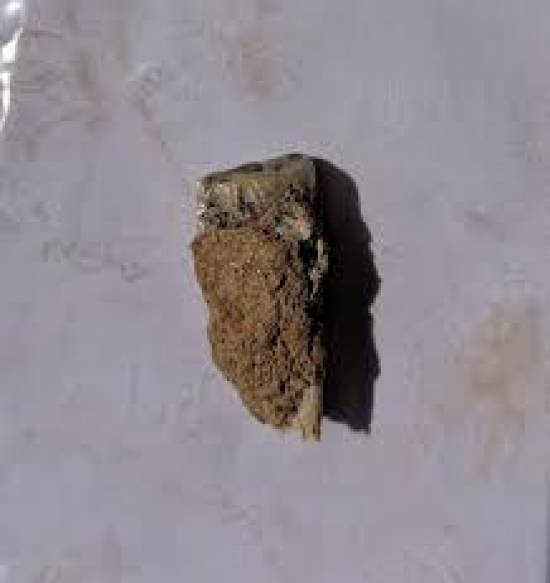Student finds 1.8 million-year-old tooth, one of oldest signs of hominins outside of Africa
Archaeologists in the nation of Georgia last week discovered a tooth belonging to an ancient human species believed to around 1.8 million years old.
The molar was found by a research student at the Orozmani dig site, dated between 1.77 and 1.84 million years old, in the Caucasus region. It's one of the earliest signs of hominins outside of Africa.
He showed the tooth to the team from the Georgian National Museum leading the dig. “Then we contacted our paleontologist and he confirmed it was a hominin tooth,” Giorgi Kopaliani, an archaeologist with the Georgian National Museum, told USA TODAY.
Kopaliani and his team began excavating Orozmani in 2019, but suspended the digging efforts in 2020 because of the pandemic. Work picked back up again last year. The team has so far discovered ancient stone tools and fossils from extinct animals such as saber-toothed cats and Etruscan wolves, Kopaliani said.
The area is located roughly 15 miles away by car from a world famous dig site called Dmanisi, where researchers uncovered hominin remains, including skulls, aged around 1.8 million years old. The tooth discovered last week joins those remains as some of the oldest evidence of early human species outside of Africa, according to Kopaliani.
The team, led by fellow archaeologist Giorgi Bidzinashvili, plans to continue excavating the Orozmani site for another week, and hopes to expand the team and the dig area in the future.
Researchers work at the Orozmani dig site roughly 60 miles from Tbilisi, the Georgian capital.
“Based on this tooth, the information we get from this site and its close proximity to Dmanisi site, now we … can talk about the population of the hominins in this area,” Kopaliani said. “There is a lot to work on, still. There is a lot to study.”
-------
USToday


